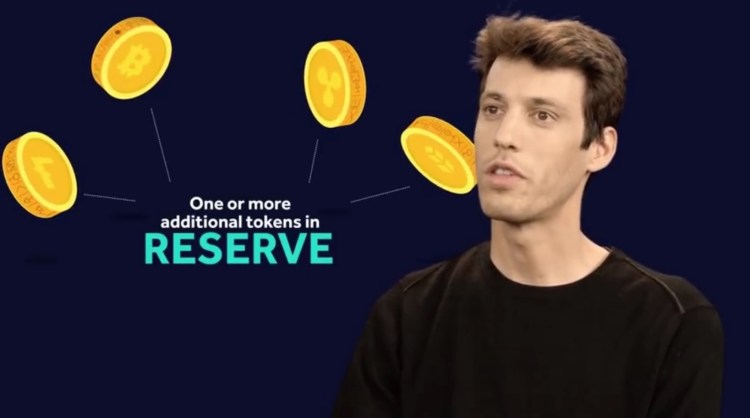Blockchain startup Bancor closed a $150 million ICO raise this week — a landmark event, both in the speed and the magnitude of the raise.
What is Bancor doing that got investors so excited? It’s trying to hit the blockchain domain at its very heart with the promise that it can enable smart tokens to serve as legitimate currency.
Cryptocurrencies, or smart tokens, are new forms of digital currency (akin to bitcoin), that aim to serve as cash equivalents for various online services. Bancor wants to enable these tokens, based on their protocol, to be widely acceptable.
For example, people will only confidently adopt cryptocurrencies when their exchange rates are stable. These tokens need to be redeemable, with high certainty, into other currencies at any given time. If Bancor is able to make this possible — through holding currency reserves that guarantee liquidity, for example — “anyone” could, theoretically, launch a new smart token and benefit from an active token marketplace.
June 5th: The AI Audit in NYC
Join us next week in NYC to engage with top executive leaders, delving into strategies for auditing AI models to ensure fairness, optimal performance, and ethical compliance across diverse organizations. Secure your attendance for this exclusive invite-only event.
Sound familiar? This is very much the role some national central banks play through their monetary policies and through regulations they impose on banks (e.g., Basel 3, Capital Adequacy Ratios etc.). Such banks act as liquidity providers and market makers with real-world currencies.
Bancor has set itself ambitious goals that could trigger the democratization of currencies, if successfully implemented. Alternatively, it could trigger devastating results for Bancor investors or introduce new volatilities into the market.
Here are a few things that could go wrong:
To begin with, ICOs are simply new ways of raising capital (in ways, similar to VC funding or IPOs). Startups fail for many reasons (technological, market, personnel, and more). The same can happen to Bancor, which is less than 20 people strong and is in the early stages of product development.
Another set of risk factors come from the ICO itself. Bancor’s newly issued smart token (BNT) must generate significant liquidity to create the needed market dynamics that would make Bancor the reserve protocol of choice for smart tokens. However, most of the ICO buyers are pure financial investors who do not intend to launch their own cryptocurrencies. That means someone else must now put their trust in Bancor and launch their platform on top of it – back to square one. In short, there are still many barriers to launching scalable smart-token based initiatives and such barriers must be overcome to create economies of scale on top of Bancor.
Another criticism of Bancor’s approach is that it is a highly leveraged play (some may even compare it to a “pyramid scheme”), given that the reserve ratio is significantly less than 100 percent and success is dependent on currencies and economies built on top of Bancor, which in turn face their own risks. This means that while rewards may be high, losses may be very high as well.
One can argue that, historically, banks have always worked this way. Indeed, the banking system’s reserve ratios are lower than Bancor’s. The major difference is that central bank issued cash instruments are universally accepted, while cryptocurrencies have yet to become mainstream and are highly volatile, resulting from a lack of highly efficient, large and proven markets, as well as lack of stabilizing forces in the virtual or real economies built on top of them.
In simpler terms, Bancor hasn’t (yet) gained the same trust and credibility that nation-states’ central banking systems enjoy. The incumbent currencies and banking systems’ biggest asset is the confidence that people put in their ability to fulfill obligations represented by notes and coins. Everyone believes that a dollar is worth a dollar. That same universal faith and value awareness cannot yet be said of digital currencies. The key question is, can Bancor and the blockchain initiatives built on top of it generate a similar level of trust?
While that question is being answered, the unchartered journey into the next revolution in monetary systems will be a thrilling one indeed.
Yoav Tzruya is a Partner at Israel-based VC firm JVP.


